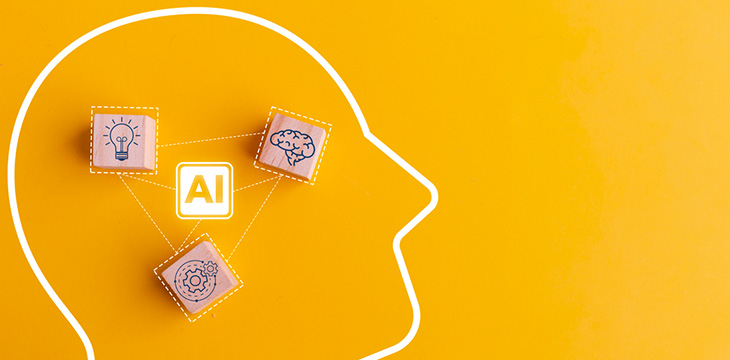|
Getting your Trinity Audio player ready...
|
The artificial intelligence (AI) industry is a fast-moving space. Innovators, governments, and everyone in between currently have their attention fixed on the products and services that AI fuels. AI can significantly improve business operations and our quality of life, but no revolutionary technology comes without risks that have the potential to cause harm.
Here are a few significant events that took place in AI last week:
Meta suspends its generative AI tools in Brazil
Meta (NASDAQ: META) has decided to suspend the use of its generative AI tools in Brazil following objections from the Brazilian government regarding Meta’s privacy policy related to personal data and AI.
This decision follows Brazil’s National Data Protection Authority’s (ANPD) suspension of Meta’s new privacy policy due to concerns about how personal data was used to train its AI systems. The ANPD requested that Meta update its privacy policy, particularly the section related to data processing for training. Instead, Meta suspended its generative AI tools while continuing discussions with the ANPD to find a resolution.
Local and global policies that relate to AI will be critical to watch. Many companies might choose not to operate in certain countries or offer watered-down versions of their products to comply with government standards, but either approach could significantly impact a business. For instance, Brazil is Meta’s second-largest market for WhatsApp users, with over 200 million people, and losing the ability to operate and train its AI in such a large market could stifle Meta’s progress in the region.
Are Japanese companies embracing AI?
A recent survey conducted for Reuters by Nikkei Research found that 40% of the 506 Japanese companies surveyed had no plans to use AI, while roughly 24% of respondents said they have already introduced AI in their businesses, and 35% said they planned to do so.
For companies that had implemented AI or planned to, key motivations included addressing worker shortages and cutting labor costs. However, hurdles to adoption included employee anxiety over headcount reductions, lack of technological expertise, implementation costs, and reliability concerns.
We hear about AI’s transformative potential more than the reasons companies might hesitate to implement it. As the Nikkei study shows, adopting AI is not always straightforward. It involves significant costs and the need for skilled personnel, and these resources do not guarantee AI system reliability, which means they require maintenance as well. Sometimes, these factors make AI implementation more expensive than keeping business operations at their status quo, which makes it unfeasible for some businesses to introduce AI into their companies.
Meta avoids European Union for its AI product
Meta has announced it will not release its AI model, Llama, in the European Union (EU) due to concerns over the EU’s privacy protection and AI regulations.
“We will release a multimodal Llama model over the coming months – but not in the EU due to the unpredictable nature of the European regulatory environment,” Meta stated.
This decision was influenced by GDPR mandates to process and transfer the personal data of EU residents. Additionally, the upcoming EU AI Act, effective in August, imposes several requirements on AI companies that wish to operate or serve EU residents. These regulations prioritize resident protection but limit companies, ultimately preventing EU residents from accessing some of the most innovative technologies.
Navigating GDPR remains a challenge for many AI companies. While the EU policies prioritize residents and protecting their data, this clashes with the heavy data requirements involved in many AI systems, which ends up disadvantaging countries through restricted access to certain AI products and services.
Nvidia, Amazon, OpenAI, and more form coalition for secure AI
At the Aspen Security Forum, the Coalition for Secure AI (CoSAI) was introduced, a group that aims to advance comprehensive security measures for AI. The group’s founding members include Amazon (NASDAQ: AMZN), Anthropic, Chainguard, Cisco, Cohere, GenLab, Google (NASDAQ: GOOGL), IBM (NASDAQ: IBM), Intel (NASDAQ: INTC), Microsoft (NASDAQ: MSFT), NVIDIA (NASDAQ; NVDA), OpenAI, PayPal (NASDAQ: PYPL), and Wiz.
CoSAI will initially focus on three areas:
- Software Supply Chain Security for AI systems: Extending SLSA Provenance to AI models to improve AI security by evaluating provenance, managing third-party model risks, and assessing full AI application provenance.
- Preparing defenders for a changing cybersecurity landscape: Developing a defender’s framework to help navigate AI security concerns, identify investments, and scale mitigation strategies in response to offensive cybersecurity advancements.
- AI security governance: Creating a taxonomy of risks and controls, a checklist, and a scorecard to guide practitioners in managing and reporting AI security.
There are a few drawbacks to groups like this existing, but we do wonder what they actually do. Similar to many government initiatives, many groups, coalitions, and associations merely want to signal to the world that they are having conversations and thinking about the piece of technology that the world has its eyes on. But in many cases, we have yet to see any action come out of these groups other than thought leadership or services that are inaccessible to consumers and most businesses—the two groups largely responsible for the surge in popularity we see in many mainstream products and services.
In order for artificial intelligence (AI) to work right within the law and thrive in the face of growing challenges, it needs to integrate an enterprise blockchain system that ensures data input quality and ownership—allowing it to keep data safe while also guaranteeing the immutability of data. Check out CoinGeek’s coverage on this emerging tech to learn more why Enterprise blockchain will be the backbone of AI.
Watch: B2029 Meetup highlights the fusion of AI and Web3
Recommended for you
British lawmakers of the parliamentary national security committee have called for a temporary ban on political parties receiving donations in
Circle (NASDAQ: CRCL) soared in 2025 thanks to U.S. ‘regulatory clarity,’ but can this momentum survive a ban on crypto

 02-26-2026
02-26-2026 




